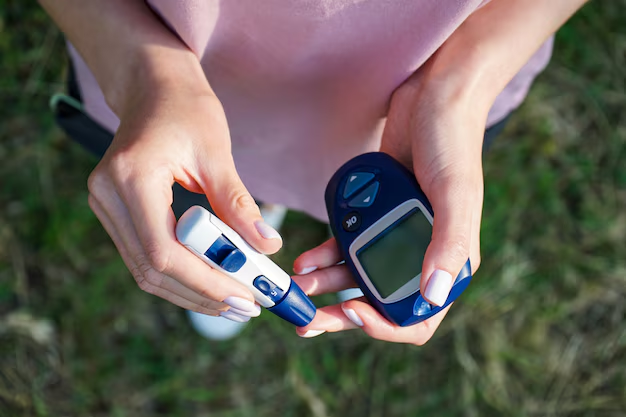Your Guide to How Can You Be Diagnosed With Diabetes
What You Get:
Free Guide
Free, helpful information about Diabetes FAQ and related How Can You Be Diagnosed With Diabetes topics.
Helpful Information
Get clear and easy-to-understand details about How Can You Be Diagnosed With Diabetes topics and resources.
Personalized Offers
Answer a few optional questions to receive offers or information related to Diabetes FAQ. The survey is optional and not required to access your free guide.
How to Find Out If You Have Diabetes: Diagnosis Explained
Diabetes is a condition that affects millions worldwide, and understanding how to determine if you have it is crucial. Early diagnosis leads to more effective management and can prevent complications. Here’s how you can be diagnosed with diabetes and what to do next if you need resources to manage it.
Identifying Symptoms
Before any tests are conducted, recognizing common symptoms of diabetes is the first step. These include:
- Increased thirst and frequent urination
- Extreme hunger and unexplained weight loss
- Fatigue and irritability
- Blurred vision
If you experience any of these symptoms, it’s important to consult with a healthcare provider.
Consulting a Healthcare Provider
Once you suspect diabetes, a medical professional can provide tests to confirm the condition. Regular check-ups are vital, especially if you have risk factors such as obesity or a family history of diabetes.
Key Diagnostic Tests
Healthcare providers use several tests to diagnose diabetes:
- Fasting Blood Sugar Test: Measures blood sugar after an overnight fast. A level of 126 mg/dL or higher indicates diabetes.
- A1C Test: Offers an average of your blood sugar levels over the past two to three months. A result of 6.5% or higher suggests diabetes.
- Oral Glucose Tolerance Test: After fasting overnight, your blood sugar is tested. Then you drink a sugary liquid, and your blood sugar levels are measured after two hours. A result of 200 mg/dL or higher confirms diabetes.
- Random Blood Sugar Test: A result of 200 mg/dL or higher can suggest diabetes, especially if presenting symptoms.
Regular monitoring and medical advice are key to managing the condition.
Moving Forward: Financial Support and Resources
Once diagnosed, managing diabetes might seem overwhelming, especially considering potential medical costs. Thankfully, there are programs and resources available to aid those needing financial assistance:
- Medicare and Medicaid: These government-run programs can help cover medical expenses for eligible individuals.
- Affordable Care Act Marketplace Insurance: Provides health plans that must cover care for those with diabetes.
- Pharmaceutical Assistance Programs: Offered by drug manufacturers to help cover medication costs.
Beyond healthcare, understanding how to mitigate costs through effective financial tools can also help:
- Consumer Credit Counseling: Offers personalized budgeting advice and credit solutions.
- Debt Management Plans: Can consolidate payments, making it easier to manage healthcare-related finances.
- Health Savings Accounts (HSAs): Enable tax-free savings on qualified medical expenses, offering long-term financial benefits.
Additionally, you can explore further educational opportunities that could support better job prospects, indirectly aiding financial stability.
Valuable Programs and Resources
Here’s a helpful breakdown of some available resources:
- 🌐 Government Aid Programs:
- Medicare
- Medicaid
- 💊 Medication Assistance:
- Patient Assistance Programs offered by pharmaceutical companies
- Discount Prescription Cards
- 🏦 Financial Management:
- Credit counseling services
- Debt consolidation plans
- 🎓 Educational Opportunities:
- Scholarships and grants for those seeking to improve job qualifications
Understanding how to diagnose diabetes is the first step toward management and doing so with confidence and knowledge is empowering. With the right medical advice and financial support, those diagnosed can navigate their journey more easily, focusing less on stress and more on health and well-being.
What You Get:
Free Diabetes FAQ Guide
Free, helpful information about How Can You Be Diagnosed With Diabetes and related resources.

Helpful Information
Get clear, easy-to-understand details about How Can You Be Diagnosed With Diabetes topics.

Optional Personalized Offers
Answer a few optional questions to see offers or information related to Diabetes FAQ. Participation is not required to get your free guide.


